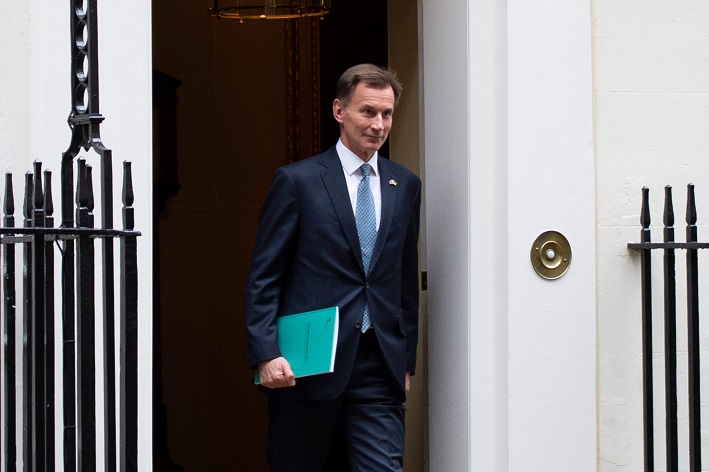Well, what did you think of the Budget? A new ‘Great British ISA’ with an extra £5,000 investment is interesting and details are awaited. We shall be providing these, I am sure. The Chancellor’s also abolishing the principle of a ‘furnished holiday let’. That is interesting and suggests no more Small Business Rate Relief on holiday lets, nor earned income or IHT/CGT attractions from the concept.
Will the latter lead to a flurry of selling-up of holiday homes before April 2025? That would make sense as Business Asset Disposal relief will stop too. The small print will be needed! Still, he has reduced residential investment property CGT to 24% maximum from 28% – I think that is a red herring? He is also abolishing the concept on ‘non-doms’ from 2025 but will that lead to wealthy people leaving the UK and taking even their present tax (minimum £30,000pa), investment, employment, spending etc elsewhere? He has sweetened that with transitional rules and also a four-year totally tax-free basis for new arrivals.
Child benefit income thresholds will also rise till the 2026 ‘system’ review occurs so that is helpful for those caught in the present income limits. He has cut National Insurance again, something which will support those in work and also incentivise working. All workers will have an almost immediate and welcome boost in pay. He noted a longer-term objective of abolishing this tax (which is what it is). I thought instead he may have made everyone liable for it (especially the retired) whether working or not – but he didn’t! Frustratingly he did not tackle indirect taxes in any way so that inflation could have benefited at the same time – but perhaps he feels that is not now necessary.
However, I also liked his demand upon ‘defined contribution pension providers’ to disclose the exposure levels to UK equities etc. Too little emphasis is given on the tax benefits being ‘used’ to not support British industry which pays the tax benefits, one could say!
Finally, he was emboldened to note that inflation is dropping fast and should be at 2% very soon – that should mean big, swift cuts to interest rates by the Bank of England, boosting the economy and the UK market (especially alternative assets with high incomes).
Investment Trust costs

The matter is being debated in The House of Lords. A letter should be published in The Times tomorrow and two of us here are humbled to be joint signatories, to help it secure attention. This is all about the ludicrousness of misleading ‘cost’ figures being used and thus deterring advisers, managers and private investors alike from using this invaluable investment medium and the bastion of the UK investment industry going back to 1868 (and way before unitised funds).
If the Bill is successful then this medium will ‘suddenly’ appear cheaper than many unitised funds for investment management and oblige their use! Sadly, still there is too much ignorance about them in the industry.
However, whilst there are some great opportunities out there, investors may be oblivious to the fact that they may have chosen a platform which censors, effectively, the shares and Investment Trusts and quoted Funds they can buy. So the LSE says there are 1,900 UK shares for example but Hargreaves Lansdown’s platform only allows 1,000. We have no limits at all – if it is quoted we can have it. This can mean some of the best opportunities are not accessible to thousands (millions?) of investors because of the line taken by the providers, even if investors are ‘self-select’ – it is not right; even spread-betting companies like IG Index constrain what you can trade too, or dealing only to close existing positions.
Do check before you sign-up, as the best investment you may want to buy may otherwise be inaccessible to you (and all the better value for us instead I guess, as we can have them on the cheap). Why is this? Sadly one reason is the regulatory backdrop which suggests the platforms could have a financial liability for allowing their investors to do stupid things, so they ban investments they think could cause them future problems – that is wrong – ‘execution only’ is the investor’s choice – facilitating the purchase of a legitimate asset not barred by and quoted on the London Stock Exchange should not be disallowed.
Going for a song

So how do you value any asset? There are so many different ways and it depends what it is! However, a simple guide is ‘what someone will pay you for it’. Supply and demand also play their part and of course the utility value of the asset itself.
However, when it comes to say ‘an investment’, perhaps a ‘fund’, then usually there are solid cornerstones which can be used. For example, what are its underlying assets worth? What level of regular income (profit?) is being generated and likely to be seen going forwards? Consideration to the levels of borrowing it may have and the rates of interest being paid also have a bearing but even then, there can be significant ranges between one asset and other apparently comparable ones. How good have the fund manager’s past choices been! Then ‘risk’ is priced too – boringly dependable is expensive and poorly returning versus high speculation and rocket-like potential returns.
Some few years ago, a new investment concept became available. I have to admit some scepticism but all power to the industry’s elbow – it does make sense, though our avoidance was wise indeed. It’s where a singer’s catalogue of songs is sold to an investor who then enjoys the royalties going forwards. Clearly there is a value, though added to the mix is the judgment as to how popular those songs may be into the future and how successfully they can be marketed. The ‘deal’ terms are also important – what if the singer rerecords all the songs so buyers take the latest versions… oi – not cricket but!
Initially, as wholly uncorrelated assets to mainstream investments like shares or bonds, or property or… the concept was very popular and attracted many hundreds of millions of pounds, a relatively ‘safe’ investment not affected by the vagaries of market movements or indeed maybe even recessions as people seem to still find the money for entertainment, however destitute the media suggest they are.
Hipgnosis was one of the biggest and it also used its clout to borrow cheaply to buy even more music, enhancing the returns for the shareholders. From a £1 start, the shares brushed £1.29 and paying a ‘reliable’ and generous income to boot. However, it has hit some wobbles and the cost of borrowing has increased, at the same time that the values of such assets may have wavered (and theoretically ‘risk-free’ assets became more attractive). Then, a new valuation places a rather depressed outlook on what the Company owns and the shares plummet even further, dropping 59% from that high point, at its worst. However, the music is still being sold and the dividend from that should still be worth 7%pa or so, except the Fund has postponed payments to concentrate its money in paying-down debts to avoid too many fire sales simply to repay lenders.
Investors need alternatives in their strategies, to counter-balance returns. We don’t have any singing funds presently – maybe we shan’t ever have some but at 53p or so, (they have rebounded since) are they a good punt as the reduced capital values attributable to the song book are much better value now than they were at the heights of enthusiasm? The deflated figures may also be overdone as valuers have to protect their backs too – will a big private fund make a bid for the lot and secure a relatively safe portfolio with a great yield well above investment grade bonds? The shares could be taken-out for say 80p and that would be a 50% uptick from the low even if initial investors still lose a chunk.
The Staff of Life

Bread is the ‘staff of life’ – a saying with biblical roots. However, wheat is the best commodity for the making of foodstuffs, including bread and indeed, the Ukraine war reminded the world where the ‘Bread Basket of the World’ was. However, what about the price of wheat? Taking WT Wheat ETF, it started trading in September 2006 at $124. Since then, the price has been on an incessant drift, though buoyed by the war to a temporary peak of $61.18 on 4/3/22. From then, it has fallen to just over $20.
This is good news as we need cheap food commodities to feed the world. Technological advances have made production cheaper and yields better, but is a 65% drop in price since March 2022 appropriate? Is too much being produced and hence deflating the price so growers will pull-out as other costs like labour and fuel continue at high levels? Is there a case again for investors to hold some wheat in their strategies at these very low levels? We did very well on this before, selling as the Russians advanced.
No catalyst for a change is expected but sometimes you just have to be sitting in the right things before that emerges and perhaps for quite a while too. For example, did you anticipate the cocoa price? Check that chart even if we sold out far too soon. If farmers suddenly decide to grow something else as the price is so low, the change in price can be significant and swift. China, India and Russia are the biggest producers so hardly a stable stable for such a staple! Watch-out too – if wheat stops being grown as much the price will rocket and here comes hyperinflation again, of food to feed the world, even if we are now told that medical concerns on the number of obese people exceed the numbers starving, for the first time ever.
Ten baggers

So Rolls Royce Plc was undeniably one of the best bigger, well-known old economy companies on the London Stock Exchange to rise significantly last year. It has continued its ascent and from 39p on 2/2/20, has broached £3.80 now – not quite a ten-fold rise just yet but poised to make it. I suspect we shall be all out by then. Perhaps even more significantly, the rise is over fivefold from only the 70p low on 30/9/22, 18 months ago.
Ignoring the hype with US tech but shall we have a sweepstake on which big or previously more renowned company in the UK will be tomorrow’s Rolls Royce in share price terms? Which entity is so deflated by market expectations that a major rebound in price and sentiment is likely? Lloyds Banking? Capita? Jupiter Fund Management? PZ Cussons? Funding Circle? Marston’s? Petrofac? Mothercare? Would you care to give your idea?
My best wishes
Philip J Milton DipFS CFPCM Chartered MCSI FPFS FCIB
Chartered Wealth Manager
Fellow Of The Personal Finance Society, Fellow Of The Chartered Institute Of Bankers





